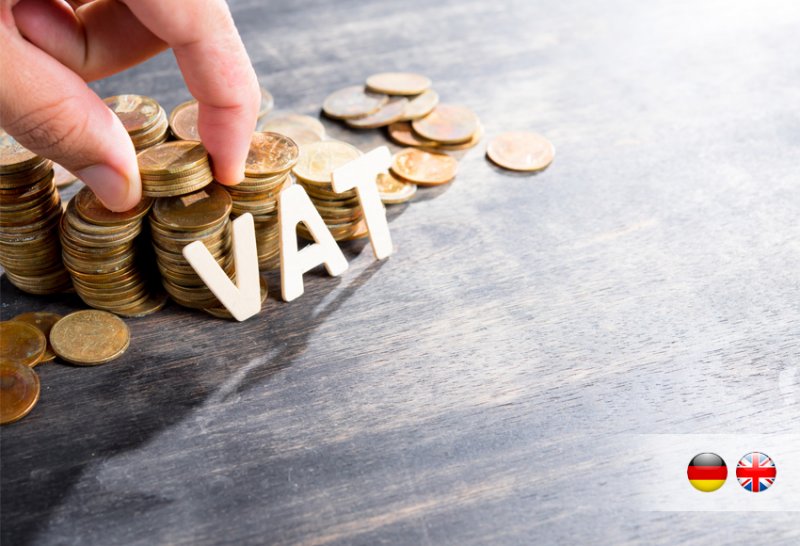Status to date
In my post ”Happy New Tax Year with Bitcoin and other cryptocurrencies (3)”, I presented the current status of the VAT treatment of Bitcoin and other cryptocurrencies among other things in regards to the gift tax. The Court of Justice of the EU (on 22/10/2015, C-264/14, DStR 2015, 2433) decided that the exchange of Bitcoin into other currencies is covered by the VAT exemption for currencies.
Table of Contents
The German Federal Ministry of Finance (BMF) took this CJEU judgment as an opportunity to publish a circular on the VAT treatment of Bitcoin and other so-called virtual currencies. The statements in the BMF circular are binding for all tax authorities in Germany and will be included in the decree on the application of VAT.
BMF circular of 27/02/2018: The basic principles set out by the CJEU apply to all cryptocurrencies
As already mentioned in our post “Happy New Tax Year with Bitcoin and other cryptocurrencies (3)”, the BMF applies the basic principles set out in the above CJEU judgment also to other cryptocurrencies (virtual currencies). Additionally, the BMF points out that virtual game money (e.g. in-game currencies) does not fall under the VAT exemption.
VAT exempt exchange of cryptocurrencies into conventional currencies
Exchanging cryptocurrencies into conventional currencies is not subject to VAT. However, the downside of this VAT exemption is that any VAT paid on services and goods related to the exchange of cryptocurrencies cannot be reclaimed.
CAREFUL with potential misinterpretations
In its circular, the BMF uses the legally correct tax language, which is unfortunately not easy to understand even for citizens interested in tax law. Therefore, those reading the circular should be careful when trying to interpret it and, if necessary, obtain advice from legally authorised persons, such as tax advisors and lawyers. Otherwise, there is a risk of wrong conclusions being drawn and there might be a nasty surprise in the end, e.g. during a company audit.
Payment of goods and services with cryptocurrencies
The BMF circular e.g. sets out that the mere handing over of Bitcoin as a means of payment is not taxable. However, this sentence must not be understood to mean that the purchase of goods or services against payment of a cryptocurrency is not subject to VAT at the level of the seller of the goods or the service provider. In fact, the opposite was and is the case! Sellers and service providers have to pay VAT to the relevant tax authority. The VAT payable therefore reduces the profit of the sellers and service providers. For this reason, sellers and service providers should include VAT in their calculations regarding the remuneration they receive from the customer.
Calculating the VAT in case goods and services are paid for with cryptocurrencies
If goods or services are sold in a cryptocurrency, the basis of calculating the applicable VAT is determined by reference to the value in euros. According to the BMF circular, the last published trading price of the cryptocurrency has to be converted into euros at the time the VAT is incurred. The seller or service provider has to document the relevant exchange rate.
BMF circular exclusively refers to VAT
The statements of the BMF set out above exclusively relate to VAT and not to any other types of tax, such as income tax. Any comparison with other types of taxes, even foreign ones, such as US income tax imposed on the sale of assets (capital gains tax) therefore does not lead anywhere. Put more specifically, the mere fact that the exchange of a cryptocurrency into a conventional currency is exempt from VAT does not mean that the profit gained from the purchase and sale of the cryptocurrency is not subject to income tax within the one-year speculation period (Sec. 23 para. 1 No. 2 German Income Tax Act (EStG); cf. our blog “Happy New Tax Year with Bitcoin and other cryptocurrencies (1)“).
Mining and VAT
Generally speaking, it must be assessed in each individual case whether a consideration was agreed for the miner’s performance and whether this was also paid. In principle, however, the BMF assumes that the transaction fee is not subject to VAT if the transaction fee is paid voluntarily. Accordingly, any remuneration with Bitcoin is also not subject to VAT.
Wallets
If a wallet provider requests a fee for the use of the wallets, VAT is payable on the fee if the service is provided in Germany (so-called electronically rendered service, Sec. 3 a para. 5 sentence 2 No. 3 German VAT Act (UStG)).
Exchange companies (trading platforms)
When trading cryptocurrencies through exchange companies, the VAT treatment of fees depends on the specific contractual agreements between the exchange company and its customers. The BMF considers the services provided by the exchange companies to be technical services which are in principle subject to VAT. However, if the exchange company buys the cryptocurrency from and sells it to the customer in its own name, any fees paid by the customer for this purpose are exempt from VAT (Sec. 4 No. 8 b UStG). If several exchange companies are involved in the purchase and sale of cryptocurrencies, the contractual relationships must be assessed on each level in order to ascertain whether the service provided is subject to VAT or not.
In the next part of the Bitcoins & Co. series, I will have a look at cryptocurrencies in the international exchange of tax information as well as national reporting and tax declaration obligations.
Titelbild / Cover picture: Copyright © fotolia





Comments are closed.